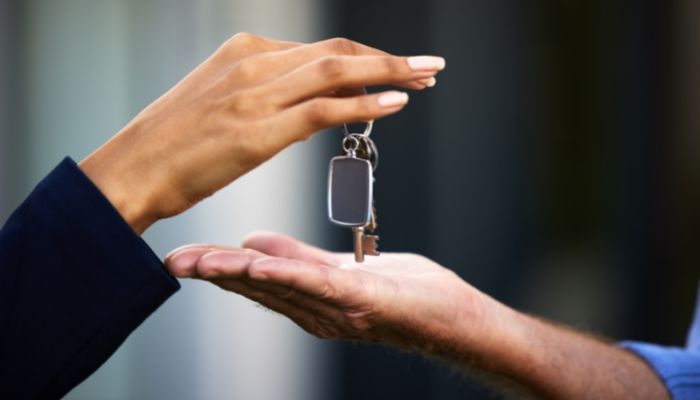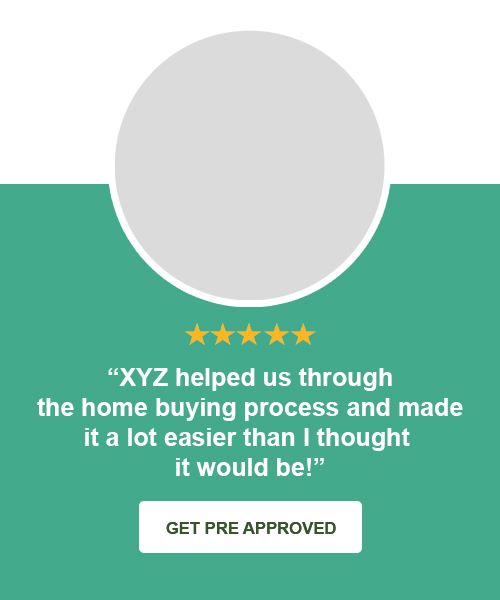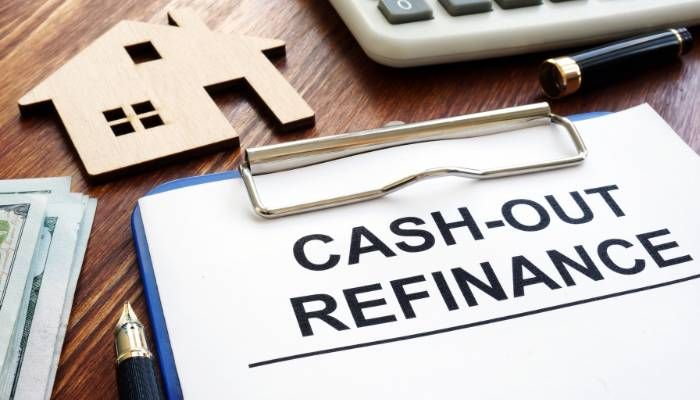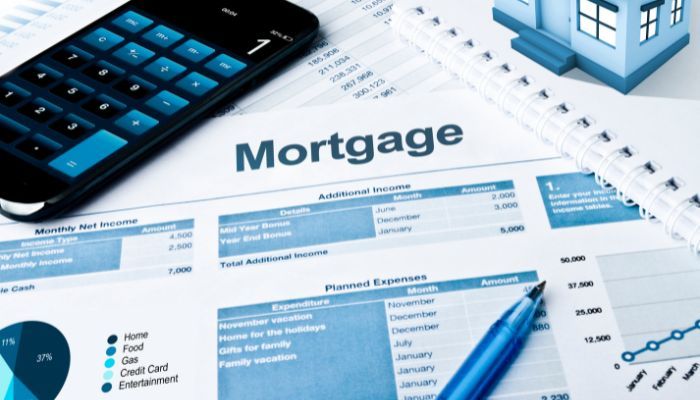
Understanding The Cost Of Homeownership
Jump To
Buying a home is like taking a leap of faith. It’s exciting, but also intimidating – there are so many unknowns that come with homeownership and the costs associated with it. That’s why it’s important to be informed and understand the full cost of homeownership before you make such a big financial commitment. In this article, I’ll discuss some of the key costs associated with buying a home and how to calculate them so you can make an informed decision about whether or not homeownership is right for you.
The biggest cost associated with homeownership is the purchase price of the property itself. Depending on where you live, this could range from hundreds of thousands of dollars to millions! But that’s not all; there are other fees and expenses associated with buying a home that need to be taken into consideration before making a purchase. These include closing costs, inspection fees, insurance premiums, property taxes, maintenance costs, and more.
In addition to these upfront costs, potential homeowners should also consider the long-term financial implications of owning a home. These include mortgage payments, homeowner association fees (if applicable), utility bills, and any necessary repairs or renovations that may come up over time. Understanding these costs ahead of time can help you make an informed decision about whether or not now is the right time for you to become a homeowner.
Calculating Mortgage Payments
When it comes to homeownership, one of the most important things to understand is how much you can expect to pay on a monthly basis. This means looking at mortgage payments and calculating what you’ll need to pay each month.
The amount you’ll need to pay each month depends largely on the type of loan you choose and the interest rate associated with it. The longer your loan term, the more interest you’ll likely have to pay over time. On the other hand, if you go for a shorter loan term, you may end up paying higher monthly payments but less in total interest by the end of the loan period.
Doing some research ahead of time and running some calculations can be really helpful when it comes to understanding how much your mortgage will cost each month. Doing this work upfront can help make sure that homeownership fits into your budget before committing to a loan.
Next up, let’s look at home maintenance costs – these are expenses that come up once you own a home that also need to be factored into your budget.
Home Maintenance Costs
Owning a home is no walk in the park. It’s a huge commitment and requires careful consideration of all factors, including the hidden costs that often go unnoticed. One such cost is home maintenance, which can quickly add up over time and come as an unpleasant surprise to many homeowners.
Home maintenance costs vary from property to property and include everything from regular repairs to unexpected breakdowns. These expenses must be accounted for when purchasing a home, as they are an inevitable part of homeownership. Regular maintenance includes things like cleaning windows, replacing air filters, mowing the lawn, painting, fixing broken appliances and more. Unforeseen expenses could include major repairs like roof replacement or HVAC system breakdowns that require professional attention.
It’s important to factor in these additional costs before signing on the dotted line – it’s not just about monthly mortgage payments! Homeowners should have a budget set aside for regular maintenance and emergency repairs so they don’t find themselves in financial trouble down the road. On top of that, understanding how property taxes fit into the equation is essential for any buyer looking to purchase a home.
Property Taxes
Property taxes are one of the largest costs associated with homeownership. As a homeowner, it’s important to understand what you’ll owe in property taxes and how they’ll be calculated.
Property taxes are determined by your local county assessor’s office, and they’re based on the appraised value of your home. This value is usually determined by an inspection and taking into account the condition of your home, any improvements you’ve made, and similar homes in the area. Property taxes can vary significantly depending on where you live, so it’s important to do some research before buying a house.
The amount you owe in property taxes also depends on your state or local tax rate, which can range from 0.2% to over 3%. The good news is that you may be able to deduct some of these taxes from your federal income tax return if you file itemized deductions. That said, it’s still important to prepare for this expense when budgeting for homeownership.
Paying property taxes is just one cost of owning a home – next up is insurance!
Insurance
Homeownership is a big financial commitment, and understanding all of the costs that come with it is key. Property taxes and insurance are two major expenses homeowners must account for when budgeting for their new home.
Now, let’s move on to insurance. Insurance can be a substantial cost for homeowners, as it protects their property from various incidents like theft, fire, weather damage, and more. Homeowners will need to purchase both homeowner’s insurance and possibly flood insurance depending on where they live. Insurance payments can vary based on the age of the home, its size and location, among other factors.
It’s important to understand all of these costs before you buy a home so there aren’t any unwelcome surprises down the road. The next step in understanding the cost of homeownership is to look at closing costs.
Closing Costs
Closing costs can feel like a financial burden, weighing heavily on the shoulders of first-time homebuyers. But there are ways to navigate this part of the journey and get your dream home without breaking the bank. I’m here to help you understand what closing costs are so you can prepare for them properly.
Closing costs include fees for services associated with buying a house, such as appraisals and title searches. The total amount will vary depending on your state and county, but typically it’s around 2% to 5% of the purchase price. You’ll also need to pay for additional services like credit reports, processing fees and attorney fees. As daunting as these costs may seem, it’s important to remember that they are necessary expenses in order to protect you from possible legal issues down the road.
In addition, make sure you factor in any prepaid items (like taxes or homeowner association fees) that may be due at closing. Unless you’re able to negotiate a lower rate or get an allowance from the seller, these amounts will add up quickly and could put a serious dent in your budget if you aren’t prepared.
With all these expenses in mind, it’s essential that you plan ahead when budgeting for your new home purchase. Doing research and getting pre-approved for a loan can help ensure that you don’t overspend when it comes time to close the deal on your dream home.
Homeowner Association Fees
When it comes to the cost of homeownership, many people overlook the homeowner association fees that can be a significant expense. According to a survey by Zillow, one in five Americans will pay an average of $400 in such fees each month.
These fees are levied by the homeowner association (HOA) and may cover things like pool maintenance, landscaping, trash removal and other building-related services. Many HOAs also require homeowners to comply with certain rules, such as noise levels and parking restrictions. In addition, some HOAs have a reserve fund which is used for repairs and upkeep of common areas like lobbies or hallways.
Before signing on the dotted line for your new place, make sure you understand what kind of HOA fees may apply and how much they are going to be. Knowing this upfront can help you avoid any surprises later down the line when it comes time to pay your bills every month. With that knowledge in hand, you’ll be ready to look into home improvement costs – another important aspect of owning a home.
Home Improvement Costs
Owning a home can be exhilarating, but it also comes with its own unique set of costs. Home improvement costs are just one of the many expenses that you should factor into your budget. From painting to landscaping, these expenses can quickly add up if you’re not careful.
Here’s a list of items that you should consider when planning for home improvements:
- Paint and repairs
- Landscaping
- Installing new appliances
- Refinishing floors
- Replacing old fixtures
These projects can become costly very quickly, so be sure to budget accordingly! It’s important to research products and services before committing to any home improvement project. This can help prevent any unexpected costs or disappointments. It’s also smart to factor in additional costs for labor, materials, and unforeseen delays or issues.
When planning ahead for home improvement projects, it’s always wise to think about future energy efficiency upgrades as well. Investing in an energy efficient upgrade now may save money down the road in the form of lower utility bills and improved comfort at home.
Energy Efficiency Upgrades
As we journey further down the road of homeownership, the costs and expenses don’t stop. Just like with any big purchase, there are always ongoing costs that you need to think about. One of these is energy efficiency upgrades. I’m sure you’ve heard of them before, but maybe you’re still wondering what they are and why they’re important.
Well, energy efficiency upgrades are exactly what they sound like – products or services that help make your home more energy efficient. They can come in different forms such as insulation, solar panels, smart thermostats, and even window tinting. All of these have one goal in mind – to reduce your monthly utility bills while making your home more comfortable and environmentally friendly.
The cost of energy efficiency upgrades will depend on the type of upgrade you choose and how much work needs to be done. But if done correctly, these investments can pay for themselves over time as you save money on your monthly utility bills. Plus, not only do you save money but also improve your home’s value by making it more attractive to potential buyers down the line.
So now that we’ve gone over energy efficiency upgrades and their importance for homeownership, let’s move on to another related topic – furnishing and decorating!
Furnishing And Decorating
When it comes to furnishing and decorating, costs can really add up. Items like furniture, rugs, curtains, lighting fixtures and appliances can quickly become expensive. It’s important to remember that being mindful of your budget is key. To save money, try buying second-hand items or splurging on a few timeless pieces. This way you can have the home you want while still saving money in the long run.
When decorating your home, there are so many options to choose from! Whether it’s a style you already love or something totally new, the possibilities are endless. You could even DIY some decorations if you’re feeling crafty. Don’t forget to factor in the cost of accessories like pillows, plants and artwork too – these small touches make all the difference.
As with any home project, make sure you take your time and consider all of your options before pulling out your wallet. A little bit of planning now can go a long way when it comes to keeping costs down later on. With these tips in mind, you’ll be ready for whatever miscellaneous expenses come your way!
Miscellaneous Expenses
Ah, miscellaneous expenses – the bane of every homeowner’s existence! You thought you had all your costs sorted out and figured out… but then comes in these sneaky little things that can throw off your budget. It’s like playing a game of whack-a-mole; every time you take care of one issue, another pops up.
Miscellaneous expenses can include anything from landscaping to appliance repair or replacement to pest control services. Even seemingly small items like paint, light bulbs, or cleaning supplies can add up over time. Don’t forget about minor plumbing or electrical repairs either – these can be expensive and often require expert attention. Then there are maintenance tasks such as replacing the filter in your air conditioner or checking for leaks around windows and doors.
It’s important to be prepared for any surprises that may come up and set aside some funds for unexpected costs. Homeownership isn’t just about the big purchases, but also taking care of the little details that keep everything running smoothly and prevent costly repairs down the road. So don’t forget to factor in those miscellaneous expenses when budgeting for your new home!
Conclusion
Owning a home can be both an exciting and daunting endeavor. The costs of homeownership should not be taken lightly, as there are numerous factors to consider when buying a home. Knowing what your down payment should be, understanding the long-term costs, and being aware of potential risks are all essential steps in the process.
With knowledge comes power, and with power comes confidence when making such a large purchase. By doing your research ahead of time, using resources such as Home Mortgage Guides, and carefully considering all aspects of the transaction, you can ensure that homeownership is a positive experience for you and your family. As investopedia states, “Real estate is often said to be one of the best investments you can make.”
For many people, buying a home is one of the most important decisions they will ever make in their lives. It is important to understand all the costs associated with homeownership before taking on such a large financial commitment. With careful planning, you can reap the rewards that come with owning a home and avoid any potential pitfalls along the way.
FAQs
How Much Of A Down Payment Should I Make?
When it comes to buying a home, the down payment is like taking that first plunge into the deep end of the pool. It’s an intimidating step, but one that can make all the difference in how easily you can manage your finances.
It can be a difficult decision to make, but as with many things in life, there are often trade-offs when it comes to financial decisions. The bigger the down payment you can afford, the more likely you are to get a better deal on interest rates and other fees associated with your mortgage. On the other hand, if you have limited funds available for a down payment, it may be necessary to take out a larger loan or extend your repayment period.
Ultimately, the amount of money you put down on your home purchase should be based on what works best for your individual needs and situation. Think carefully about what kind of financial commitment you’re able to make now and in the future and use that as a guide when deciding how much money you want to put down on your new home.
What Are The Tax Benefits Of Owning A Home?
Owning a home can feel like a big financial commitment, but the good news is there are tax benefits that come with it. Knowing what those are can help you understand the overall cost of homeownership. As an owner, I want to make sure I’m taking advantage of all the potential savings.
First off, there’s a deduction for mortgage interest. That means if I take out a loan to buy my home, I could get money back when tax season rolls around. Then there’s a property tax credit which could help me save even more money on my taxes each year. On top of that, if I make energy-efficient improvements to my home, I may qualify for additional credits or deductions too!
These types of credits and deductions can really add up over time and help me save on the costs associated with owning a home. Doing some research ahead of time and speaking with an accountant or financial advisor will help ensure that I’m taking full advantage of all the available tax benefits when purchasing my new home.
What Are The Long-Term Costs Of Homeownership?
Owning a home is like taking on a lifelong commitment; it’s a decision that will have long-term implications. I’m sure you’re aware of the tax benefits of homeownership, but what are the financial costs? Well, let me break it down for you.
First off, there’s the mortgage. Though some lenders offer mortgages with low interest rates and little money down, it’s still important to consider how much you can afford to pay each month and over the life of the loan. Make sure to factor in maintenance expenses too as these can add up quickly; think new shingles, paint jobs, plumbing repairs and more.
Then there are property taxes which vary widely by state. Property taxes are often based on assessed value and can be quite high in certain areas. It’s important to note that these taxes may increase over time as well. Finally, don’t forget about homeowner’s insurance which protects your home from damage or loss due to natural disasters or theft. All these costs should be taken into account before making any decisions regarding homeownership.
So if you’re considering buying a home, make sure to do your research and understand all the long-term costs you’ll be taking on. It could be one of the most important investments you ever make!
What Are The Best Ways To Save Money On Homeownership?
We’ve all heard of the American dream; owning a home. But let’s be honest, homeownership can cost you a pretty penny! I mean, who really has the money to buy a house outright? The truth is that saving money on homeownership can make it much more achievable. So, if you’re ready to start your journey towards achieving the American dream, here are some of the best ways to save money on homeownership.
Believe it or not, one of the best ways to maximize savings when purchasing a home is to get pre-approved for a mortgage loan. Doing this will help give you an idea of what type of loan and interest rate you qualify for, which will help you determine how much house you can afford. Additionally, having pre-approval gives the seller confidence that they’re dealing with a serious buyer who has already been vetted by a lender.
Another way to save money on homeownership is by shopping around for the most competitive rates and fees associated with financing and closing costs. You don’t have to settle for the first offer – compare loan terms from different lenders and see who offers better terms for your situation. Also, look at all of your options for down payment assistance programs in your area as well as federal tax credits that may be available too.
It’s also important to prepare yourself financially before taking on such a large financial commitment like buying a home. Make sure you have ample savings set aside for both upfront costs like closing costs and ongoing expenses like maintenance and repairs as these can add up quickly if not planned for properly. Taking time to understand all aspects of homeownership before jumping in will pay off in dividends down the road!
What Potential Risks Should I Be Aware Of When Buying A Home?
Buying a home can be a daunting task, with the potential for financial pitfalls lurking around every corner. It’s easy to get swept up in the excitement of owning your own place, but it’s important to remember that homeownership also comes with its own unique set of risks. Here are some of the potential risks you should look out for when buying a home:
Symbolism:
Picture yourself walking down a dark hallway lined with closed doors – each one containing a potential risk for you and your finances. Every door looks exactly the same, making it hard to tell which ones to open and which ones to avoid. That’s why it’s so important to understand what might be waiting behind each door before you make any decisions about buying a home.
Risks include:
- Unexpected repairs
- Declining property values
- Unforeseen legal issues
It’s critical that prospective buyers do their homework ahead of time, researching the local real estate market and getting an accurate appraisal of their proposed property. Home inspections are also crucial – they can catch problems that could potentially cost thousands of dollars or more if not addressed quickly. Additionally, buyers should familiarize themselves with zoning laws in their area and ensure that all permits have been obtained properly before closing on a home.
When it comes time to buy, making sure you’re armed with as much knowledge as possible can help reduce the potential for unexpected costs or other complications down the road. Educating yourself about all aspects of homeownership is key if you want to protect yourself from any potential risks associated with purchasing a house.
Get A Pre-Approval Today!

Home Mortgage Calculator


Leave a Reply